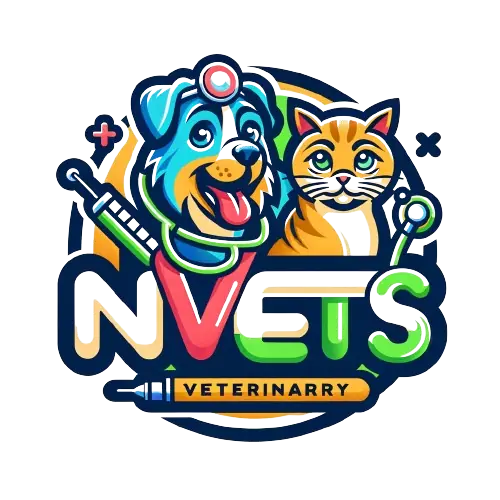Managing stress is crucial for both pets and athletes. The principles behind stress management, health maintenance, and overall well-being share similarities between these two domains. A balanced approach that focuses on routine, environment, and mental wellness can yield impressive results for pet health and athlete performance. This article explores lessons for managing stress and promoting health in pet care and athlete well-being.
Understanding Stress Factors in Athletes and Pets
Stress affects both athletes and pets in unique ways, yet there are some overlapping stressors in both groups. Identifying these stressors is the first step towards managing them effectively.
Common Stressors in Athletes
Athletes often face physical and psychological stress from rigorous training, competitions, and high expectations. These stressors can lead to:
- Physical burnout: Overtraining and lack of recovery can result in physical exhaustion and injuries.
- Mental pressure: High expectations, intense competition, and fear of failure can cause mental stress and anxiety.
Stress Factors for Pets
Pets, especially dogs and cats, experience stress due to changes in their environment, separation anxiety, or inadequate physical activity. Common pet stressors include:
- Environmental changes: Moving to a new home or loud noises can disturb a pet’s peace of mind.
- Lack of physical activity: Insufficient exercise can lead to behavioral issues and anxiety in pets.
Establishing a Routine to Promote Wellness
Creating a consistent routine is crucial for both pets and athletes. It not only reduces uncertainty and anxiety but also improves physical health and performance.
Consistency in Pet Care Routines
For pets, regular feeding times, exercise schedules, and sleep routines help them feel safe and secure. Routines also build trust between pets and their owners, enhancing the pet’s emotional well-being.
Structured Training for Athletes
Athletes also benefit from consistent training schedules. A structured plan allows for a balance between exercise, rest, and mental training. Sports clubs can implement structured training programs using a Comprehensive Tennis Management System to track progress and adjust routines based on an athlete’s performance and recovery needs.
Leveraging Technology for Efficient Management
In sports clubs, technology can streamline operations and ensure that athletes receive the right support to manage stress and health. Modern management systems like a Comprehensive Tennis Management System and an Efficient Tennis POS System can make a significant difference.
Comprehensive Tennis Management System for Streamlined Processes
A Comprehensive Tennis Management System helps organize training sessions, track athlete performance, and provide personalized training schedules. This not only helps reduce the stress of unorganized practices but also enhances overall efficiency.
Efficient Tennis POS System for Club Management
Implementing an Efficient Tennis POS System improves operational efficiency in sports clubs by streamlining billing, tracking member usage, and optimizing resource allocation. This enhances the club’s ability to cater to athletes’ needs and significantly increases revenue.
Mental Health Support: Crucial for Pets and Athletes
Mental well-being plays a vital role in both pet care and athlete performance. Stress and anxiety can be detrimental to pets and athletes, impacting their behavior, focus, and overall health.
Supporting Athlete Mental Well-being
Sports clubs should emphasize mental training alongside physical training. This could include:
- Mindfulness and relaxation techniques: Teaching athletes to relax their minds before and after games to reduce anxiety.
- Counseling and mental health services: Offering mental health support and counseling to athletes facing high-pressure situations.
Emotional Support for Pets
For pets, emotional support comes from building a strong bond with their owners and providing a safe environment. Activities like pet massage, regular playtime, and consistent communication help reduce pet anxiety and build emotional resilience.
The Importance of Physical Activity for Well-Being
Physical activity is essential for maintaining the health of both pets and athletes. It not only improves physical strength but also releases endorphins, reducing stress and promoting happiness.
Tailoring Physical Activities for Pets
For pets, daily walks, play sessions, and agility training are crucial to release pent-up energy and maintain their physical and mental health. Ensuring the right type and amount of activity for each pet’s breed and personality is key.
Customized Training Regimens for Athletes
For athletes, personalized training regimens are essential. Sports clubs can utilize a Comprehensive Tennis Management System to design customized training programs that align with each athlete’s needs, reducing the risk of injury and overexertion.
Nutrition and Its Role in Stress Management
Nutrition is a cornerstone of health and plays a significant role in managing stress. Proper nutrition helps pets and athletes maintain energy levels, recover faster, and stay focused.
Nutritional Balance for Athletes
Athletes require a balanced diet to sustain their energy and mental focus. Sports clubs should consider incorporating nutritional guidance into their services to promote holistic athlete health.
Pet Nutrition and Stress Reduction
For pets, a balanced diet supports their physical health and helps them manage stress. Providing high-quality pet food with essential nutrients can improve their behavior, mood, and overall well-being.
The Role of Socialization in Managing Stress
Socialization is crucial for reducing stress and enhancing well-being in both pets and athletes. The presence of peers or companions creates a supportive environment that alleviates stress.
Group Training and Team Building for Athletes
Athletes benefit from group training sessions and team-building activities, which foster camaraderie and reduce feelings of isolation. Implementing regular group activities not only improves physical fitness but also creates a sense of belonging.
Social Interaction for Pets
For pets, socializing with other animals and humans helps them feel secure and comfortable. Regular interaction through pet playdates or dog parks reduces their anxiety and improves their behavior.
Enhancing Club Operations to Support Well-being
Sports clubs play a vital role in the well-being of athletes. By focusing on efficient management systems, clubs can offer a comprehensive service to members and increase their revenue.
Efficient Tennis POS System for Streamlined Club Operations
A modern Efficient Tennis POS System streamlines payments, schedules, and resource allocation within a sports club. This not only reduces the administrative burden but also allows the club to provide a better experience to its members, thereby helping to significantly increase club revenue.
Personalized Wellness Programs
Personalized wellness programs that integrate physical training, mental health support, and nutrition guidance can enhance an athlete’s overall well-being. By implementing such programs through efficient systems, clubs can cater to their members’ holistic health needs.
Final Reflections on Managing Stress and Health
Managing stress and health effectively requires an approach that encompasses physical routines, mental well-being, nutrition, and socialization. Sports clubs and pet owners alike can benefit from these insights to create a nurturing environment for both athletes and pets.
For sports clubs, implementing technology-driven systems like a Comprehensive Tennis Management System and an Efficient Tennis POS System not only enhances operational efficiency but also significantly increases revenue. These systems allow clubs to focus on delivering personalized, comprehensive services that cater to the physical and mental needs of athletes.
By taking a balanced approach, sports clubs can foster an environment where athletes thrive, while pet owners can create a safe and supportive space for their pets. This holistic strategy is key to achieving optimal health and well-being for both athletes and pets.

